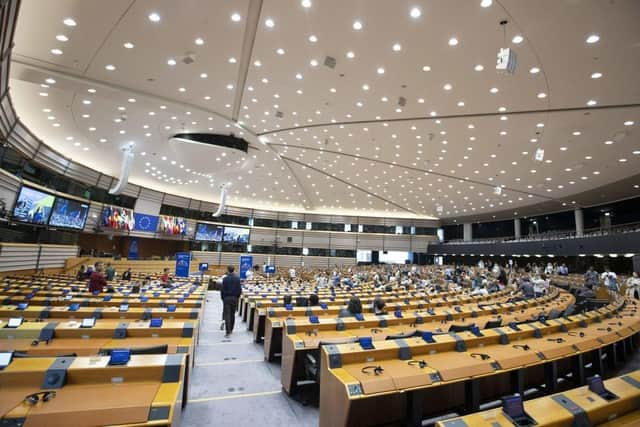European Parliament set for far-right swing in June elections, report claims
Anti-European populist parties are forecast to top the polls in nine European Union member states and score second or third place finishes in a further nine countries, a analysis of polling data ahead of the European elections has forecast.
The report from the European Council on Foreign Relations found that although the European People's Party (EPP) is expected to remain the largest group of the legislature, maintain agenda-setting power, and have a say over the choice of the next commission’s president, populist voices, particularly from the radical right, are set to be more pronounced and involved in decision making than at any point since the European Parliament was first directly elected in 1979.
Advertisement
Hide AdAdvertisement
Hide AdThe study utilises extensive polling data and advanced statistical modelling to anticipate voter behaviour and future composition of the legislature after European countries vote for Members of the European Parliament (MEPs) in June.


Experts warned a strong swing to the right could impact EU policies such as the next phase of the European Green Deal, as well as foreign policy commitments. Some environmental policies have been voted in by only small margins, meaning a right-wing swing could see them rejected. Meanwhile, more pro-Russian parties are likely to win seats in the European Parliament at the next election, which could also see issues such as aid to Ukraine facing more opposition.
The report, A Sharp Right Turn: A Forecast for the 2024 European Parliament Elections, has claimed populist parties with rooted Euroscepticism will emerge as lead parties in Austria, Belgium, the Czech Republic, France, Hungary, Italy, the Netherlands, Poland and Slovakia.
Professor Simon Hix, co-author of the report, and Stein Rokkan, chair of comparative politics at the European University Institute in Florence, said: “Against a backdrop of stirring populism, which may reach a new peak with the return of Donald Trump as US president later this year, parties of the political mainstream need to wake up and take clear stock of voter demands, whilst recognising the need for a more interventionist and powerful Europe on the world stage.”
Meanwhile, almost half the seats held by MEPs may fall outside the “super grand coalition” of centrist transnational groups such as EPP, the Progressive Alliance of Socialists and Democrats (S&D) and Renew Europe (RE), with representation decreasing from 60 per cent to 54 per cent, according to the study’s projection.
Prof Hix said: "June’s elections, for those who want to see a more global Europe, should be about safeguarding and enhancing the position of the EU. Their campaigns should give citizens reason for optimism. They should speak to the benefits of multilateralism. And they should make clear, on key issues relating to democracy and the rule of law, that it is they, and not those on the political fringes, who are best placed to protect fundamental European rights.”
Co-author and political strategist, Dr Kevin Cunningham, said: “The findings of our new study indicate that the composition of the European Parliament will shift markedly to the right at this year’s elections, and that this could have significant implications for the European Commission and Council’s ability to take forward environmental and foreign policy commitments, including the next phase of the European Green Deal.”
Comments
Want to join the conversation? Please or to comment on this article.
